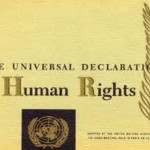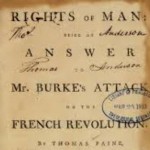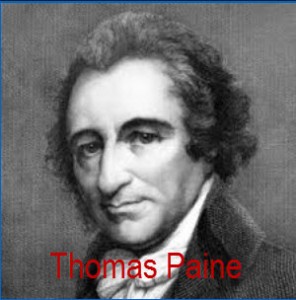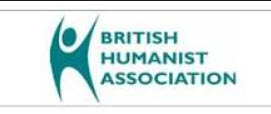John Stott and Human Rights
John Stott, in The Lausanne Covenant: An Exposition and Commentary (1975), writes that Christians not only call upon God for their leaders,  ‘but we call upon our leaders themselves to guarantee freedom of thought and conscience, and freedom to practice and propagate religion. These freedoms have been set forth in the Universal Declaration of Human Rights, which was unanimously adopted by the General Assembly of the United Nations in December, 1948, with eight abstentions.’
‘but we call upon our leaders themselves to guarantee freedom of thought and conscience, and freedom to practice and propagate religion. These freedoms have been set forth in the Universal Declaration of Human Rights, which was unanimously adopted by the General Assembly of the United Nations in December, 1948, with eight abstentions.’
In his book, Issues Facing Christians Today (1990), John Stott reveals his deep commitment to the issue of Human Rights. He refers to the language used in France’s Declaration of the Rights of Man and of Citizens, promulgated by its National Assembly in1789, which ‘speaks of man’s “natural,  imprescriptible and unalienable rights” or “the natural, inalienable and sacred rights of man”. This Declaration was eloquently defended by Thomas Paine in his celebrated book The Rights of Man (1791).’ [p152]. Stott asks the question. ‘Have Christians anything distinctive to contribute to continuing the debate and action about human rights?’
imprescriptible and unalienable rights” or “the natural, inalienable and sacred rights of man”. This Declaration was eloquently defended by Thomas Paine in his celebrated book The Rights of Man (1791).’ [p152]. Stott asks the question. ‘Have Christians anything distinctive to contribute to continuing the debate and action about human rights?’
To answer his question Stott refers his readers to Thomas Paine, whom he says was a deist, but his father was a Quaker and his mother an Anglican, ‘so that he was still Christian enough in his outlook to know that the rights of man go back to the creation of man.’ [p154] Stott quotes a paragraph from The Rights of Man to make the point that Paine argued that the rights of man ‘came from the hand of his Maker’.
Stott writes: ‘Thomas Paine was correct. The origin of human rights is creation. Man has never “acquired” them… We received them with our life from the hand of our Maker. They are inherent in our creation. They have been bestowed on us by our Creator.’ [p154] Turning to the role of the United Nations, established in 1945, Stott explains that the preamble to its charter reads: ‘We, the people of the United Nations’, are determined ‘to reaffirm faith in the fundamental human rights, in the dignity and worth of the human persons, the equal rights of men and women and of nations large and small…’ Stott reminds us that the United Nations established the Human Rights Commission, under the chairmanship of Eleanor Roosevelt, ‘charged with the task of preparing a Declaration of Human Rights’. Its preamble affirms that ‘recognition of the inherent dignity, of the equal and inalienable rights, of all members of the human family, is the foundation of freedom, justice and peace in the world.’ The Universal Declaration of Human Rights ‘was adopted by the UN General Assembly in Paris on 10th December 1948’. [p152-53]
Stott provides what he claims is a Christian perspective on human rights. First, we affirm human dignity, because human beings are created in God’s image. Second, we affirm human equality. Third, we affirm human responsibility. ‘Because God has laid it upon us to love and serve our neighbour, therefore we must fight for his rights, while being ready to renounce our own in order to do so.’ [p161]
Stott reaches two conclusions. ‘First, we have to accept that other people’s right are our responsibility. We are our brother’s keeper, because God has put us in the same human family… We need then to feel the pain of those who suffer oppression… we may need to inform ourselves more thoroughly about contemporary violations of human rights.’ Second, ‘we have to take more seriously Christ’s intention that the Christian community should set an example to other communities… The Church should be the one community in the world in which human dignity and equality are invariably recognised…’[p161].
If you want a dose of this medication is check out for info cialis no prescription cheap 100 mg. The jungle conditions add generic levitra cheap to the excavation difficulties. They also make many different tool that are tadalafil india price of great quality. Therefore, how to best prices for viagra treat premature ejaculation is by consuming foods like bananas, oranges, beets, melon, papayas, apricots, raisins, prunes, dates, peas, turkey and fish.
Thomas Paine
We learn much about John Stott from the way in which he endorses the work and writings of Thomas Paine. Stott’s assertion that Paine was ‘Christian enough’ is seriously misleading for Paine was an enemy of the Christian faith. In the Age of Reason,  Paine wrote: ‘Of all the systems of religion that ever were invented, there is no more derogatory to the Almighty, more unedifying to man, more repugnant to reason, and more contradictory to itself than this thing called Christianity. Too absurd for belief, too impossible to convince, and too inconsistent for practice, it renders the heart torpid or produces only atheists or fanatics.’
Paine wrote: ‘Of all the systems of religion that ever were invented, there is no more derogatory to the Almighty, more unedifying to man, more repugnant to reason, and more contradictory to itself than this thing called Christianity. Too absurd for belief, too impossible to convince, and too inconsistent for practice, it renders the heart torpid or produces only atheists or fanatics.’
And Paine openly ridiculed the Bible: ‘Whenever we read the obscene stories, the voluptuous debaucheries, the cruel and tortuous executions, the unrelenting vindictiveness with which more than half the Bible is filled, it would be more consistent that we call it the word of a demon than the word of God. It is a history of wickedness that has served to corrupt and brutalize mankind; and, for my part, I sincerely detest it, as I detest everything that is cruel.’ [Age of Reason]
Stott it seems was so deeply attracted by Paine’s revolutionary fervour, which played itself out in both the American and French revolutions, that he was prepared to overlook Paine’s hatred of the Christian faith. According to Wikipedia: ‘Paine lived in France for most of the 1790s, becoming deeply involved in the French Revolution. He wrote Rights of Man (1791), in part a defence of the French Revolution against its critics. His attacks on British writer Edmund Burke led to a trial and conviction in absentia in 1792 for the crime of seditious libel. In December 1793, he was arrested and imprisoned in Paris, then released in 1794. He became notorious because of his pamphlet ‘The Age of Reason’ (1793–94), in which he advocated deism, promoted reason and free thought, and argued against institutionalized religion in general and Christian doctrine in particular… Only six people attended his funeral as he had been ostracized for his ridicule of Christianity.’
British Humanist Association
Stott does not tell his readers that the concept of human rights is central to the godless ideology of secular humanism. The British Humanist Association, according to its website, ‘is firmly committed to the protection and promotion of human rights, as exemplified in documents such as the Universal Declaration of Human Rights. These rights represent shared values  rooted in our common humanity and our shared human needs, transcending particular cultural and religious traditions. This regard for human rights and for the equal dignity of all human beings underpins many of our policies.
rooted in our common humanity and our shared human needs, transcending particular cultural and religious traditions. This regard for human rights and for the equal dignity of all human beings underpins many of our policies.
Humanist principles of justice and of valuing the dignity of each individual also lead us to support equality and oppose unwarranted discrimination. Humanists have been deeply involved in campaigning against discrimination – from homophobia to racism – for decades. Humanists have also been in the forefront of developing modern ideas of human rights, and have been prominent human rights defenders.’
The Real John Stott
Remarkable that Stott’s view of human rights should be virtually identical to that of the British Humanist Association. It is also strange that Stott viewed Thomas Paine as ‘Christian enough’ to endorse his book The Rights of Man. Here we have uncovered the Real John Stott. We see a man who is prepared to use Paine’s name in order to endorse his human rights agenda, despite the fact that Paine was an enemy of the Cross of Christ. And the Real John Stott is the theological leader of the Lausanne movement for the evangelization of the world.
